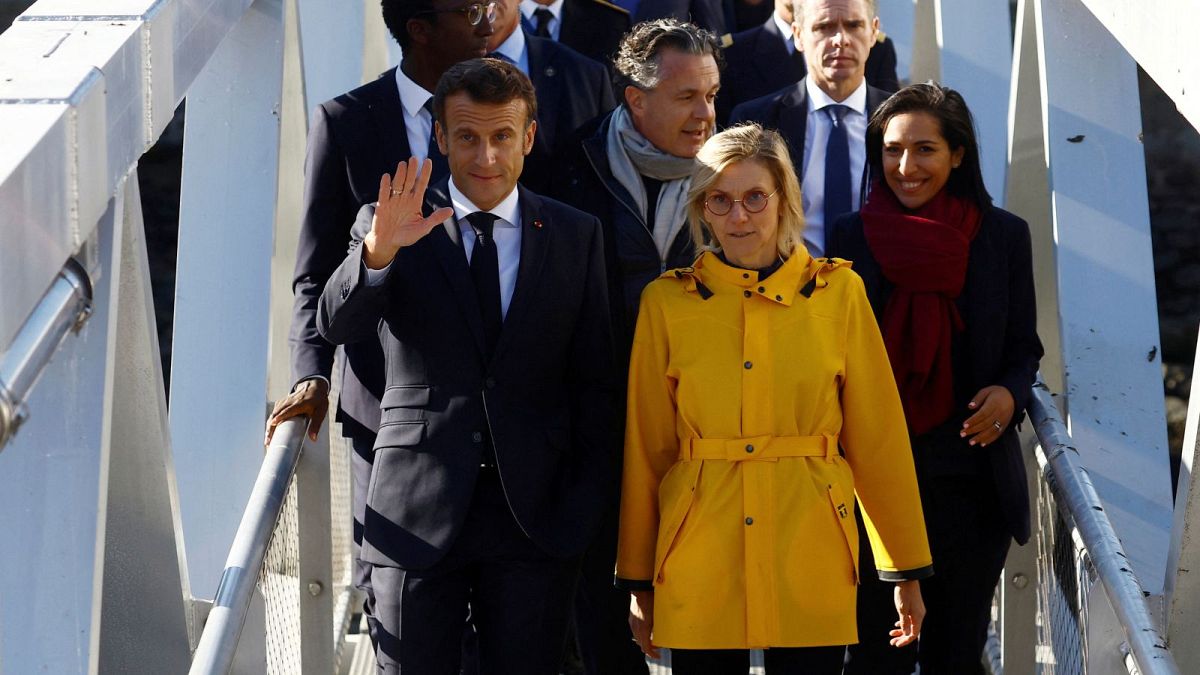French President Emmanuel Macron convened France’s Ecological Planning Council meeting yesterday (31 March), for the first time in over a year and a half.
Macron is a man with many competing priorities, but between hosting the “Coalition of the Willing” summit for Ukraine last week, and wrapping up the SOS Ocean Summit, he signalled that climate action is still high on the agenda for France.
Greenhouse gas emissions fell by just 1.8 per cent last year, according to preliminary estimates from Citepa, the state’s official pollution monitor. As the Élysée Palace acknowledged on Friday, that is a “slowdown” that risks France’s goal of halving emissions by 2030 compared to 1990 levels.
“This is one of the president’s motivations for convening this ecological planning council and relaunching mobilisation in certain sectors where we feel we’re not fully on track to reach our objectives,” a presidential source told reporters.
What did the Ecological Planning Council decide?
The council meeting was “encouraging”, Macron wrote on X. “We are keeping our climate commitments. The results are there. Let’s not relax our efforts: when the nation commits, it progresses.”
Agnès Pannier-Runacher, Minister of Ecological Transition, Biodiversity, Forestry, the Sea and Fisheries, also shared updates from the gathering of around 15 ministers.
Transport and buildings are a particularly stubborn source of emissions, while forestry is absorbing less carbon than hoped. The energy industry sector recorded the largest decline, by 11.6 per cent compared to 2023, according to Citepa.
One of three “flagship measures” Pannier-Runacher announced is the extension of an electric leasing scheme, whereby active drivers from low-income households can rent an electric car for around €100 per month. This proved popular when it ran for a month in January last year, and is now set to resume in September 2025.
To tackle housing emissions, a “zero thermal sieve experiment” will be launched in certain neighbourhoods in the coming weeks. Residents in the leakiest buildings – those with energy performance ratings of F or G – will be offered ways to tighten up their homes’ energy efficiency.
Third, the minister trailed a new national strategy on food, nutrition and climate, with the express aim of making food sustainable and accessible for all citizens.
“Ecological planning is an issue of protecting our fellow citizens, more than ever,” Pannier-Runacher said in a post on X. She also emphasised that the council was guided by the overarching national aims of reducing France’s energy dependence and reindustrialising its green industry.
Another outcome of the meeting will be the creation of “a mission on the ecological divide.”
“Whether it is for the quality of their air, their water, their food, their living environment and their landscapes, the French are directly concerned by climate change. And those who are already suffering the most effects are the most precarious,” said Pannier-Runacher.
The climate council last met in September 2023. A number of big initiatives were launched then, including regional climate conferences, a €700 million package for 13 metropolitan “RER” rail networks, and a plan to roll out one million heat pumps by 2027.

